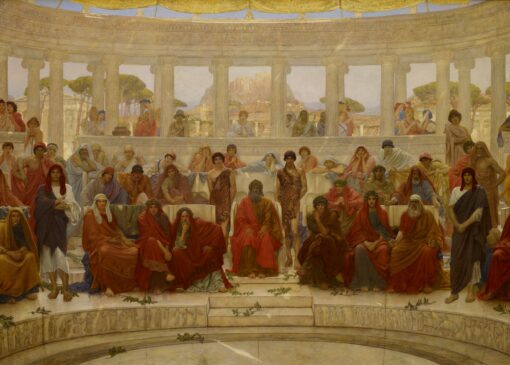On The American Interest website, Jakub Grygiel explores the classics for insights about the nature of contemporary international politics – especially how the ancient understanding of “tyrant” can shed light on the behavior of today’s “autocrats” or “dictators.”
Based on some of the classics, including parts of Thucydides, one could argue that the nature of tyrannical rule is such that regimes of this sort are actually circumscribed in their strategic ambitions; they may stir up local or regional trouble but (unlike modern totalitarians following a universal ideology) they have less impact on international stability. Tyrants aim first and foremost at their own safety and material interests; they may fish in troubled waters among their neighbors but their fear of domestic revolt and of potential rivals ultimately limits their willingness to fight large wars at a distance. Tyrants, according to this line of argument, are local, inward-looking thugs with limited means.
Grygiel agrees that there is something to this view. But he believes that it may be incomplete and imperfect. He cites Xenophon’s Hiero, which explores the rapacious mind of the tyrant, for whom the desire for personal safety must compete with the desire to seek the pleasure of ever-wider domination. Tyrants by their nature lack moderation and hence are prone to unpredictable and immoderate heavier. Grygiel draws in particular from Sophocles’ Antigone, whose heroine points out that tyrants have “ruthless power to do and say whatever pleases them.” “Whatever pleases them” has few constraints, changes from day to day, and has a tenuous connection to any real assessment of existing conditions. In domestic policy, the tyrant has almost no limits when it comes to seeking “whatever pleases him.”
Such unopposed rule, in Grygiel’s opinion, can also have consequences on a tyrant’s external behavior. The lack of internal opposition may indeed lead to great immoderation in his foreign policy. He can pursue “whatever pleases him” up to the point that he finds a foreign power not subject to him that says “no more.” Unconstrained internally, a tyrant encounters resistance only abroad.
It is too simplistic, therefore, to suggest that tyrants are simply local, self-limiting nuisances. In that view, there is also a naive hope that a tyrant is self-defeating and thus needs no consistent and forceful opposition. The reality is different. Tyrants are prone to seek domination of ever-larger possessions, and the only constraint on their expansion, aside from internal strife, is effective opposition by external powers. If they are not combated, tyrants can indeed be highly disruptive of international stability.
This important line of argument is worth considering in some detail, I would think. Some who might be characterized as a tyrant, even including those associated with aggressive ideologies, have shown apparent restraint. Francisco Franco comes to mind. Did his failure to throw in actively with the Axis in World War II, which seemed inevitable to many at the time, result from circumstances peculiar to Spain’s internal politics, geographic position, or Franco’s risk-reward calculations (many historians believe he would have acted had Hitler offered a better deal)? How to account for Albanian Enver Hoxha’s xenophobic isolationism?
Another avenue to explore is the possibility that modern tyrants might act, as a matter of fact or policy, to increase each other’s appetite to challenge both regional security and the international status quo. This, even in the absence of any ideology (other than anti-Westernism) that would unite them. Of course, the ambitions of tyrants in proximity to each other might also cancel each other out. Much to consider here.


